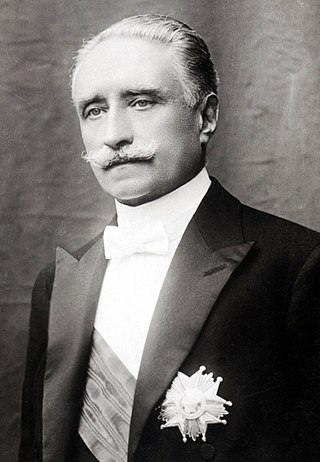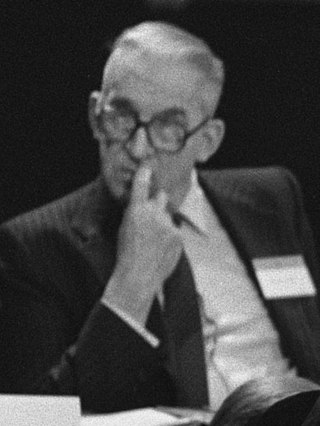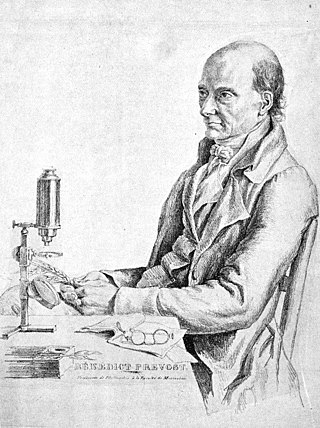
Philippe Berger, born on September 15, 1846, in Beaucourt (Haut-Rhin, currently in the Territoire de Belfort) and died on March 24, 1912, in Paris, was a French orientalist, professor and politician. He was a senator from 1904 to 1912. [1]

Philippe Berger, born on September 15, 1846, in Beaucourt (Haut-Rhin, currently in the Territoire de Belfort) and died on March 24, 1912, in Paris, was a French orientalist, professor and politician. He was a senator from 1904 to 1912. [1]
Philippe Berger grew up in Paris, where he attended the Lycée Saint-Louis and the Lycée Louis-le-Grand. In 1867, he entered the Faculté de théologie protestante de Strasbourg, met Ernest Renan and began learning Hebrew.
Engaged in the health service of the Loire Army during the Franco-Prussian War of 1870, he was awarded the military medal for his conduct during the siege of Paris.
In 1873, he supported a thesis of theology at the Faculty of Montauban, entitled Études des documents nouveaux fournis sur les Ophites par les «Philosophouména» (Studies of new documents provided on the Ophites by the "Philosophouména"), which caught Renan's attention. Thanks to him, he was appointed chief librarian of the Institut de France (1874). Becoming Renan's secretary, he worked with him on the publication of the Corpus inscriptionum semiticarum (in particular on articles dealing with Phoenicia) and was appointed professor of Hebrew at the Faculté de théologie protestante de Paris in 1877.

In 1892, Berger joined the Académie des inscriptions et belles-lettres in place of Ernest Renan. The following year, he succeeded his master at the Collège de France, where he held the chair of Hebrew until 1910.
Philippe Berger entered politics in 1895, when he was elected general councillor of the canton of Giromagny (Territory of Belfort). Becoming President of the General Council, he won the by- Senate election of the Territory of Belfort in 1904, succeeding Frédéric Japy. He was re-elected without opposition in 1909.
In the Senate, Philippe Berger sat with the democratic left group and participated in several commissions. He died in office.
Coming from a family from Switzerland, settled in Montbéliard since 1660, he was the 3rd son of Eugène Berger, a Protestant pastor, and Louise Caroline Mathilde Pitois (sister of Éléonore, wife of Oscar Berger-Levrault). He had four brothers and a sister: [2] [3]

Paul Eugène Louis Deschanel was a French politician. He served as President of France from 18 February to 21 September 1920.

Athanase Josué Coquerel was a French Protestant theologian.

Patrick Cabanel is a French historian, director of studies at the École pratique des hautes études and holder of the chair in Histoire et sociologie des protestantismes. He mainly writes on the history of religious minorities, the construction of a secularised French Republic and French resistance to the Shoah.
Jean Adolphe Massebieau, known as Louis, was a French Protestant historian and theologian.

Marc Boegner, commonly known as pasteur Boegner, was a French theologian, pastor, essayist, notable member of the French Resistance and a notable voice in the ecumenical movement.
Henri-Joseph Crelier was a Swiss Roman Catholic priest, Hebrew scholar and Biblical exegete.

Antoine Laurent Apollinaire Fée was a French botanist who was born in Ardentes, 7 November 1789, and died in Paris on 21 May 1874. He was the author of works on botany and mycology, practical and historical pharmacology, Darwinism, and his experiences in several regions of Europe.
Jan Joosten is a Belgian biblical scholar, former pastor, and convicted sex offender. From 2014 to 2020, he was Regius Professor of Hebrew at the University of Oxford. He was previously, and then concurrently, a professor at the University of Strasbourg, a position he started in 1994 and maintained alongside his chair in Oxford. In June 2020, he was found guilty of possessing child pornography, and was dismissed from his chair at Oxford. He retired from his Strasbourg position in 2021.
The Academy of Sedan was a Huguenot academy in Sedan in the Principality of Sedan, founded in 1579 and suppressed in 1681. It was one of the main centres for the production of Reformed pastors in France for a hundred years.
Ernest Alexandre Lauth was a French anatomist. He was the son of anatomist Thomas Lauth (1758-1826).

Albert Pierre Camille Peyronnet was a French politician who was a senator from 1912 to 1945 and Minister of Labor in 1922–24.
Ernest Louis Georges Will was a 20th-century French archaeologist and University professor, a member of the Académie des Inscriptions et Belles-Lettres.

Rémi Gounelle is a French protestant theologian, a professor of history of early Christianity at the Faculté de théologie protestante de Strasbourg and dean of that same faculty since 2010.
Maurice Vernes was a French Protestant theologian and historian of religion.
Elisabeth Labrousse was a French philosopher, historian, and academic. She became known for her work on Pierre Bayle and the history of French Protestantism.

Jacques Maury was a French pastor.

Isaac-Bénédict Prévost was a Swiss Protestant theologian and naturalist who was one of the first to identify fungal infection of plants and to find treatments to avoid them.

Antoine Pfeiffer was a French reformist pastor. He served as President of the Protestant Reformed Church of Alsace and Lorraine from 1988 to 2000 and was a member of the Communauté d'Églises en mission.
Marianne Carbonnier-Burkard is a French historian of modern Protestantism and honorary docent at the Faculté de théologie protestante de Paris. She is vice-president of the Société de l'histoire du protestantisme français and a member of the Comité consultatif national d'éthique pour les sciences de la vie et de la santé (2013–2017).
Jacques Poujol was a French essayist and historian of Protestantism. He also fought in the French Resistance during the Second World War.